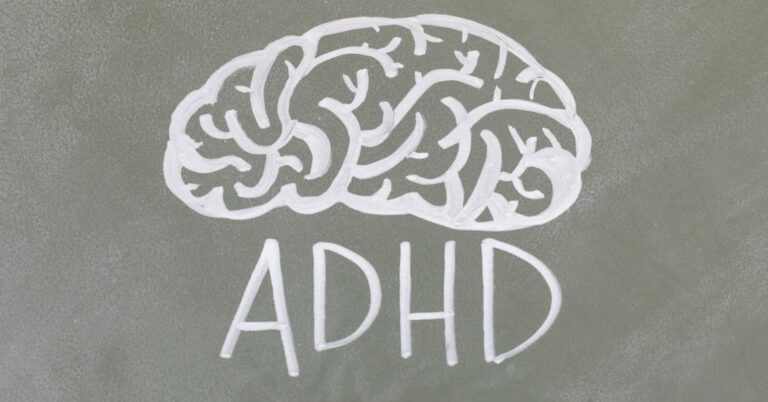I recently attended the 2023 International Conference on ADHD. Their theme this year was “Connect, Learn, Thrive.” There was a wealth of valuable information, and the following is worth sharing to help you or your child on their attention-deficit/hyperactivity disorder (ADHD) journey.
Find your strengths and pursue your interests.
This was a prevalent theme across many presentations, especially those discussing finding the best-fit college when you have ADHD. It sounds like common sense, but when you have ADHD, pursuing your interests is critical. A primary motivator for those with ADHD is high interest in a task. With little to no concern over consequences, those with ADHD struggle to maintain attention on mundane, rote, or boring tasks. However, once they find something they are passionate about, stand back and watch the magic happen! My ADHD son is a self-proclaimed space nerd with his relentless learning about anything related to space flight and technology. Because of his interest and intense focus, he was a national finalist in an essay contest about traveling to Mars and is currently crushing it at the small aviation and aeronautical college he attends. As parents, we need to support and encourage the interests of our ADHD kids to put them on the path to success.
Help your inattentive ADHD brain focus.
It is possible for those with inattentive ADHD to get stuff done once they understand how their unique brain works and ask the right questions.
- How can I make this task interesting? Children and adults with ADHD have limited energy to focus on task completion, so they must be selective about how they spend it. One of the most effective strategies for completing a disliked task: Make it interesting! (I told you this was a common theme across the presentations at the conference.)
- Am I emotionally invested in the task? Another key strategy is to be aware of who you are doing the task for; if you are emotionally invested in the task, you will have a greater chance of completing it.
- Can I get support to help me complete the task? Difficult or uninteresting tasks require support from those around you. For example, an ADHD student studying for an exam may need to study with a partner to help them stay focused. Misery loves company, especially for those with ADHD.
- How much work am I willing to do right now? When you have ADHD, you need to assess what you are ready to do right now. How can you break up the task into smaller pieces to prevent your ADHD brain from being overwhelmed?
- What are my strengths? Ask yourself how you can use your knowledge to help you complete a boring task. What are you good at? My son has always struggled with writing assignments in school, and, whenever he can, he tries to write about something he is passionate about, like aviation or aerospace, or even his ADHD.
Colleges need to do a better job supporting students with ADHD.
Most information on ADHD focuses on elementary- and middle-school-age children. I quickly found out that once an ADHD teen transitions to college, there are fewer and fewer resources available for them or their parents. There are an estimated 2 million college students with ADHD, and those with ADHD can take up to twice as long to graduate compared to neurotypical peers, and often attend several colleges trying to find the right fit, or just drop out.
Helping a child choose a college is a daunting task when you have a neurotypical child, never mind a child with ADHD. Colleges don’t make it easy to find information regarding academic accommodations, mental health counseling, or policies regarding ADHD medication. (Some schools won’t prescribe ADHD medications due to concerns over diversion and abuse among non-ADHD students.) A study of 200 four-year colleges and universities found that more than half did not have a policy for assessment and treatment of ADHD, and only a third had information online about assessment and treatment.
We are fortunate that our son goes to a school that offers comprehensive disabilities services. (All colleges and universities are required to offer basic services, some institutions offer more than others). His university also accepted his high-school 504 Plan as confirmation of his ADHD diagnosis and eligibility to receive academic accommodations. However, many institutions require a re-evaluation to confirm an ADHD diagnosis for incoming students, which can be cost-prohibitive for many families.
Beware of misinformation on the internet.
With the rise and growth of digital platforms, the internet has made access to information easy and convenient. Recently there was an explosion of ADHD self-diagnosis on the popular social media platform TikTok. A 2022 Canadian research study evaluated 100 of the most popular ADHD videos on TikTok and found more than half had misleading information and less than a quarter had useful information. So how can you know if information is reliable? Be wary of sites that are based on personal experiences, sensationalism, or outdated information; seek out those that are based on scientific knowledge. Reputable sites like Psychology Today, Children and Adults with Attention Deficit Hyperactivity Disorder (CHADD), The Attention Deficit Disorder Association (ADDA), and The Child Mind Institute offer a wealth of information on ADHD.




















+ There are no comments
Add yours